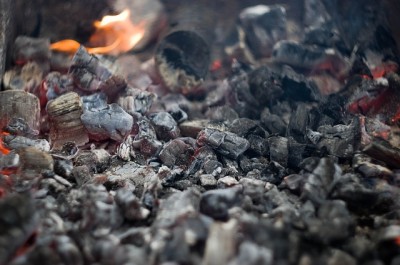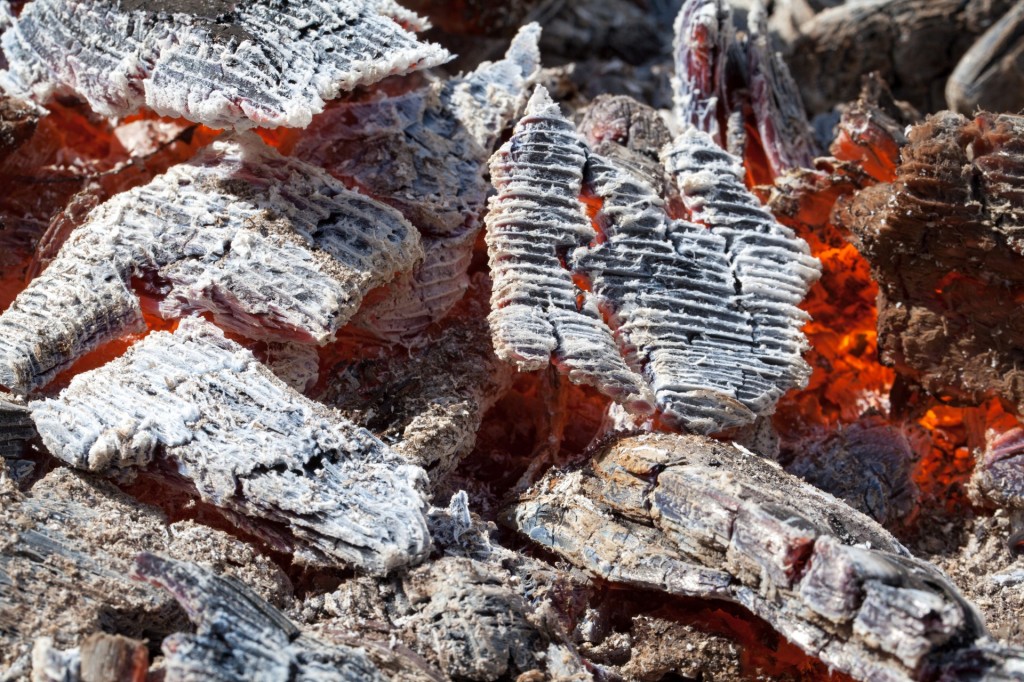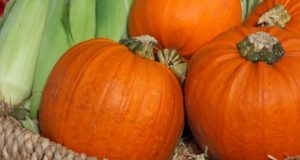When heating with wood in the winter, you’ll inevitably have a surplus of wood ash. Thankfully, wood ash has a lot of great uses around the home, and once you begin putting it to use, you may be wishing you had more of it available.
1. Melting ice
The leftover ash from wood is made up of nutrients that are not volatilized by fire, including many forms of salt. That salt isn’t quite table salt, but is made up of other charged ionic compounds such as calcium. These function to melt ice on pathways in much the same way as commercial ice melt compounds, but without the danger to pets and damaging effects on the soil. Sprinkle a little on icy paths and driveways to melt ice and improve traction. Just keep in mind that you’ll likely have dirty boots as a result.
2. Fertilizer
The carbon burns off in your wood stove, leaving mineral-rich ash that is especially high in calcium. Calcium-loving plants can get a big boost with an application of wood ash in the spring, and it’s especially effective for tomatoes and asparagus. Wood ash is alkaline, so it is not appropriate for low rainfall areas out west with naturally alkaline soils, and also should be avoided around acid-loving plants such as blueberries.
3. Homestead soap making
Our ancestors didn’t have commercially produced lye, but they did have soap. How did they do it? Anthropologists believe that soap was invented when a nomadic tribe tried cooking meat over an open fire near a stream, and when the animal fat dripped into the wood ash it was saponified (turned into soap) before running into the water source. The people noticed the suds, and soon learned that clothing washed downstream of a cooking fire came out cleaner. A simple soap can be made by boiling hard wood ashes with a little rain water and animal fat.
4. Dust bath for poultry
Wood ash is an especially effective anti-parasite agent for poultry, and providing them with a dry ash corner in their coop or yard is a great way to encourage them to dust bath and remove their own parasites naturally.
5. Flea and tick removal for pets
 While poultry will voluntarily dust bath in ash to remove parasites, your dog and cat will take some more convincing.
While poultry will voluntarily dust bath in ash to remove parasites, your dog and cat will take some more convincing.
‘Miracle Oil Maker’ Lets You Make Fresh Nut Oils Within Minutes!
Saving wood ash to dust into the fur of your pets throughout the year can be an effective way to control fleas and ticks. Just remember that your pets, especially cats, may not always be willing to cooperate.
6. Remove odors
Wood ash works much the same way that baking soda does to absorb ambient odors, and a small container in the refrigerator or root cellar can keep odors down if things spoil. It’s also a great way to remove skunk odor from yourself, your loved ones or your pets.
7. Deter vermin
Rats, mice, ants and roaches hate wood ash, and a sprinkling in the dark corners of your house and the back of your cupboard will help keep them out of those hard-to-reach places.
8. Compost nutrient boost
Adding wood ash to your compost heap can help increase the mineral nutrients to promote faster decomposition and a higher nutrient value at the end. It’s especially good at breaking down hard-to-compost items such as orange peels, corn cobs and banana peels. Place those items in a bed of wood ash to break down before adding them to your general compost heap. Be careful, as too much ash can change the pH balance and make your compost too alkaline, possibly ruining it. Use ash in your compost bins with caution.
9. Control algae
Small amounts of wood ash in ponds can control algae by giving regular pond plants a boost, just enough to outcompete the algae and keep the pond water clear. Keep in mind that you’ll only need a small amount. Most recommend 1 tablespoon per 1,000 gallons of water, and if you can’t accurately calculate your pond volume, use with caution and add small amounts, waiting for results.
10. Clean glass and silver
The small particles in wood ash make a great gentle abrasive that helps to clean silver dishes, silverware and jewelry, and is also used on a wet sponge to clean the glass on wood stove doors.
11. Control garden pests
Slugs and snails are deterred by wood ash because it contains non-sodium salts that can dehydrate and kill them. Dust around vulnerable plant beds in your garden to naturally keep them under control.
Do you know of other uses for wood ash? Share your ideas in the section below:
 Off The Grid News Better Ideas For Off The Grid Living
Off The Grid News Better Ideas For Off The Grid Living





